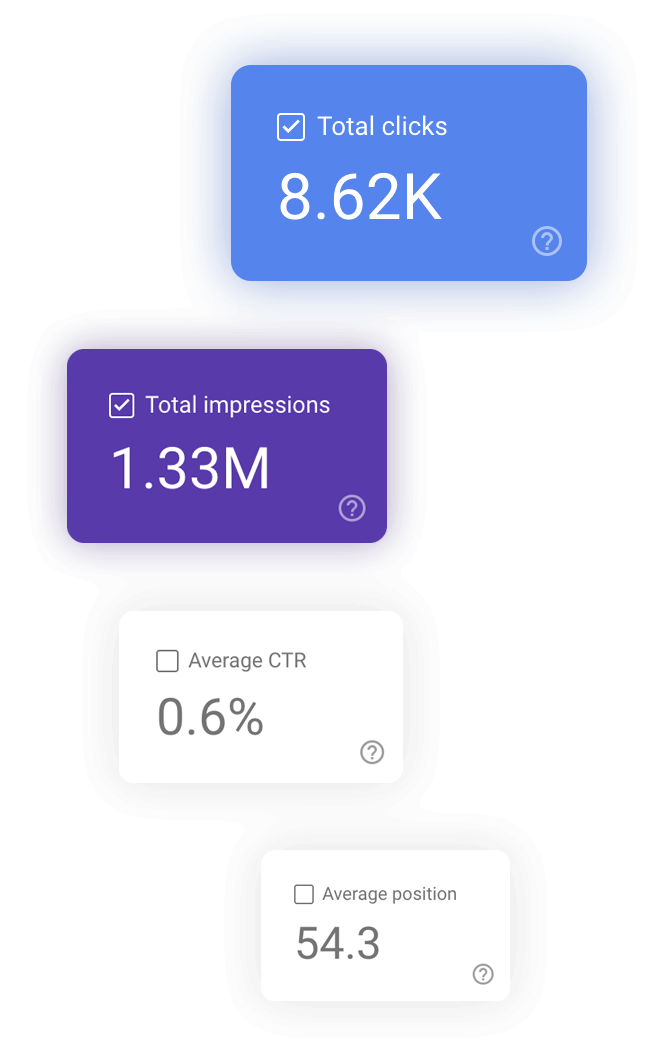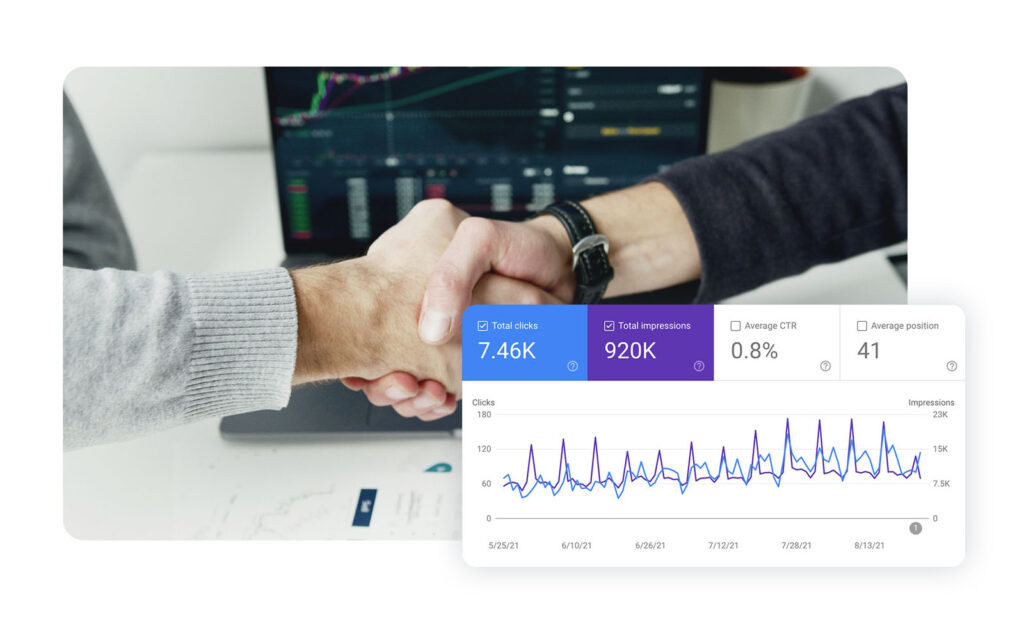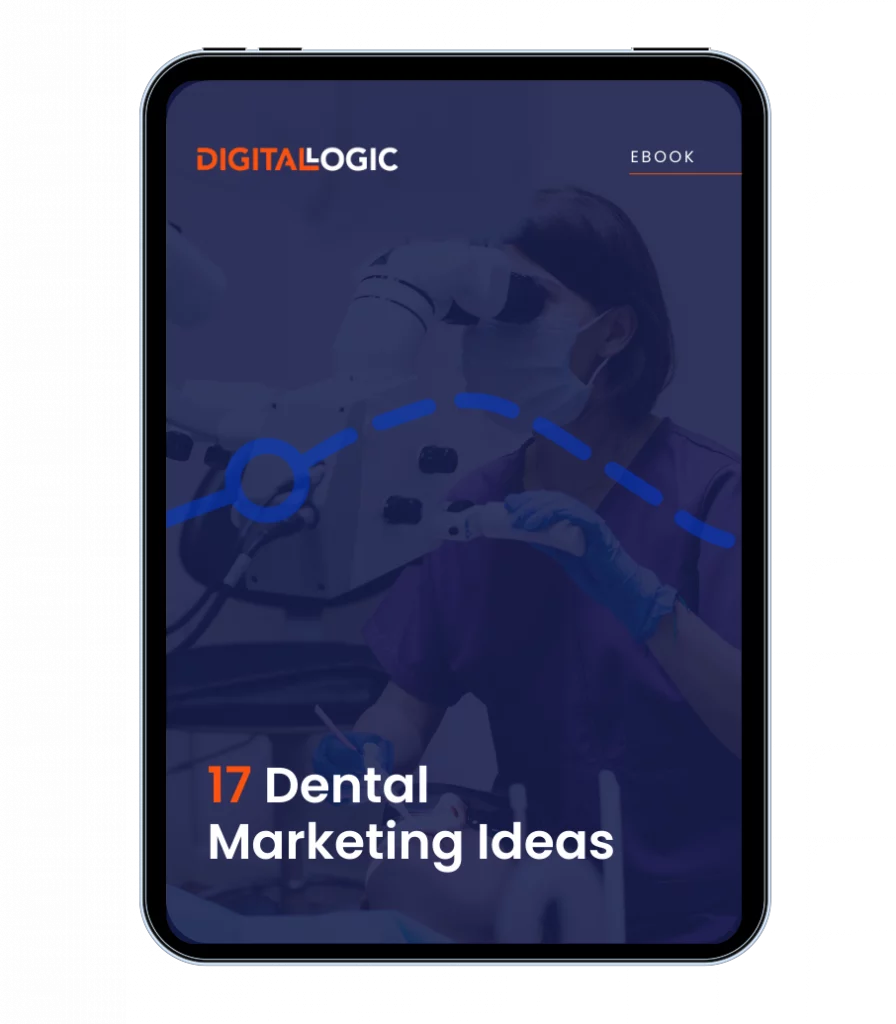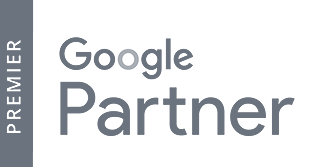Dental SEO Services
Best dental search engine optimization service to help turn clicks into patients.

Home » Dentist Marketing Company » Dental SEO Services
SEO for Dentists
Dental practices and providers, whether general dental clinics, periodontists, orthodontics, or any other specialists, have experienced a dramatic change in the dental sector over the past decade or so. In the past, it was common to see small dental practices stay afloat by treating an entire family for generations, relying only on word of mouth referrals as the main source of dental marketing. Those days are gone.
With newer technology and better dental digital marketing available, prospective patients are relying less on recommendations and more on online reviews when selecting their family dentist.
While Facebook, Yelp, and Google reviews can help to sway a potential patient’s opinion, other digital marketing factors, such as a dental website’s user experience and how it ranks on search engines can, as well.
This is why dental SEO services are critical to stay competitive in today’s dental industry, and we’re here to help.
Dental SEO Agency
Digital Logic is a top healthcare marketing agency with a strong focus on dental SEO. We’ve helped hundreds of clients grow their practices. We can help you get new patients and grow your relationships with existing patients through digital marketing.
Our dental marketing agency develops dental SEO strategies and orthodontic SEO services that are backed by data to help take your dental practice to the top.
To learn more about our dental SEO services and how they can help to grow your dental practice, keep reading!
90% of search engine users only click on websites that show up in the first page of their search results. You absolutely want to be on that first page.
What is Dentist SEO?
SEO is short for search engine optimization. This is the process by which a dental website is improved in order to help popular search engines, like Google, rank your site within the search results.
A number of best practices make up a dental SEO campaign to ensure that your site is shown to the best possible target audience. In the dental world, this can become specific quickly, depending on what specialties and services that your dental practice offers.
Simply put: if someone searches for “dentist near me,” the practice with the best SEO will most likely be the first organic result. This means they got to the top of google search results without having to pay for an ad.
A good SEO strategy will keep your site up to date, despite the constant changes, like algorithm updates, in the online world of dental marketing. And, without the help of SEO experts, like those at Digital Logic, your dental website could be missing out on reaching valuable potential patients, as your competitors move ahead by ranking higher on search engines.
Why is it Important for Dentists to Rank on Search Engines?
If you’re looking to get new patients or increase the number of specific dental services that occur at your dental practice, SEO is the best long-term solution. SEO services will also be the most cost-effective way to reach prospective patients, while you improve your brand authority.
Over time, your ROI should increase with dental SEO services. If you currently invest with another digital marketing agency, and this isn’t the case, it may be time to look elsewhere.
The number of potential patients that search online before scheduling a dental appointment grows yearly. Studies estimate anywhere from 77-90% of potential patients look at search engine results before booking an appointment. So, if your dental practice isn’t investing in dental SEO services, don’t be surprised when the numbers start dropping.

How Does Search Engine Optimization for Dentists Help?
Dental SEO services and PPC services for orthodontists will provide dental practice owners with the ability to show up higher in the search engine rankings for specific dental search terms or target local searches, such as “Dallas orthodontist” or “DFW dentist office.”
Having a website that ranks high on the first page of Google or other search engines means that your practice has better online visibility. This means more opportunities to reach new patients.
You want your website to be able to deliver any and every answer to a customer’s questions. Think of your website as an employee that works 24/7. It performs all the duties of a receptionist, directory, and marketing platform. It’s more than a full-time employee, and doesn’t even get a salary or benefits! The best part? You have 100% control over your website and how it promotes your practice.
Potential Revenue
First of all, what does a dental practice need in order to grow? More patients. Consider the Average Customer Value (revenue generated by all dentist visits during the year divided by the total amount of visits) and the Customer Lifetime Value (revenue brought in over the lifetime of providing services to a specific patient).
The Average Patient Lifespan (amount of time a patient returns to the same dentist) is about 10 years.
Customer Lifetime Value = Average Customer Value x Average Patient Lifespan
Let’s say your Average Patient Value is $850
Customer Lifetime Value = $850 x 10 year = $8,500
Next, let’s say that because of your awesome SEO strategy, you get 10 new patients a month. This works out to $8,500 per month, and $85,000 in Customer Lifetime Value. An additional 10 new patients every month from your Dental SEO efforts could mean $1,020,000 ($85,000 x 12)
As you can see, your online presence is an incredibly lucrative tool. Your website should be budgeted as an absolutely essential expense for your practice. Coming up with a strategy to optimize your website for search engines is just as important.
As a medical professional, you want your dental website to look authoritative and organized. Not only do you want to make sure you answer the questions local dental patients are asking, but you also want to gain their trust.
Before making a big investment in dental implants, or even a few cavities, consumers will research online. If your website has the right kind of content to convince them to book an appointment with you, chances are it has what it takes to make it to the top of Google search results.
Digital Logic’s Approach to Dental SEO Services
How Do I Get My Dental Website to the 1st Page of Google?
How did Google become the most commonly used search engine, not to mention most popular website in the world? Part of their success comes from matching search engine users to the most relevant results. Google’s algorithm makes sure that when consumers search for “dentist in New York” or “porcelain veneers in NYC,” they find websites that meet high standards.
In order to meet these standards, a website has to be relevant to the search term, easy to use, and is overall high quality.
It’s hard to rank organically on the first page of Google. Ranking organically means getting to page 1 without paying for an ad. Your competitors are vying for the first page of google. If they can outrank you on Google, they will snag everyone searching for “dentist near me” without having to pay for an ad.
At Digital Logic, we tend to skip over the fancy online marketing jargon and get right down to the brass tacks-what is actually going to help grow your dental practice. While every dental practice is unique, the following is what we typically recommend when we’re asked about dental search engine optimization strategy.
Local SEO for Dentists
Despite any dentist’s qualifications, their practice will still be considered, for the most part, a local business. So, the first of many ranking factors that we look into is always local SEO for dentists. Dental websites must show up for local dental searches in order for their business to grow. This is a non-negotiable item for us.
Why Should Your Dental Practice Invest in Local Dental SEO Services?
There are a host of reasons why dentists should invest in local dental SEO.
Here are the 3 main reasons:
Yellow Pages and generational loyalty are a thing of the past.
Until the past decade, dental practices could take out a large Yellow Pages ad and wait for patients to show up. As we previously mentioned, most of your prospective patients search online for local businesses. And, Google clearly dominates that market.
Free traffic
Online advertising is one of the largest marketing costs for business owners. This includes dental practices, now, as well. Ranking higher on search engines will provide an unending stream of free traffic (once you’ve paid your dental SEO company). Traffic tends to increase exponentially, so you want to start earlier rather than later.
Faster results
While national dentists’ SEO can take 3-6 months to start showing results, local dental SEO is easier to break through the initial Google search barrier. With a targeted search engine campaign, your dental practice could potentially jump to the first position on the search engine results pages within the first month or so.
What Should Your Local SEO Strategy Include?
Your local search engine optimization campaign should include the following:
- Setting up a new or optimizing an existing Google Business profile. This ensures that your site will show up for relevant voice searches in your area.
- Adjusting your information so that your NAP (name, address, and phone number) is the same across all popular online directories and online review sites.
- Adding local business schema to your dental website.
- Incorporating location keywords into your website content.
By including local search engine keys into your dental SEO strategy, your dental site will be more likely to show up when potential clients perform local searches, especially for location-specific keywords-for example, if a prospective patient in Atlanta is searching for “dentists in Atlanta, GA.”
Buying vs. Research Intent: Which Do Dental Websites Need to Rank For on Search Engines?
Creating Quality Content for Patients With Buying Intent
Buying intent will include prospective patients who need services immediately or in the near future. For example, “orthodontist in Houston, TX” leads us to believe that someone needs a cleaning or procedure done fairly quickly.
By catering to those prospective patients with buying intent, you’ll see faster results. So, our dental SEO company focuses on this keyword group initially. We’ll feature these dental keywords on your homepage and build out the services pages for specific dental keywords that drive a higher number of more qualified leads to your website.
However, the keywords with buying intent tend to be the keywords that other websites want to rank for, as well. This makes the keywords more difficult to rank for, especially on a new website.
In order to outrank the competition, you’ll need to have better content and a better link-building strategy. This can only happen over time. So, we also focus on research intended to help deliver results in the interim.
Content Creation for Patients With Research Intent
Research intent keywords mean that the person searching isn’t necessarily ready for your dental services, just yet. And, that’s ok!
An example of a research intent-driven keyword would be “Should I choose a dentist who specializes in pediatric care?” The person is more than likely weighing their options.
Although these keywords do not drive quick conversions, they are also a necessary part of SEO for dentists and are needed in order to rank on the search engine results pages.
These keywords and queries are also the same ones that most dental clients believe they’re too good to answer. As SEO experts, we believe this thought process is detrimental to any online marketing strategy.
Never, ever underestimate the power of dental anxiety.
Taking the time to answer frequently asked questions on your website is one of the best ways to encourage hesitant searchers to visit your dental practice.
Keyword Optimization: The Key to Quality Dental Search Engine Optimization
As one of the leading dental SEO companies, we take keyword rankings very seriously. When we speak with new dental SEO clients, we create a list of keywords that reflect their specific dental practice’s key attributes and services they wish to promote using our digital marketing services.
A few examples of this could include “pediatric dental services” or “dental implants.”
We then take these dental keywords and conduct extensive keyword research, as well as competitor research using a variety of programs to determine the best way to utilize the keywords in order to give the website a stronger presence and improve the overall dental search engine optimization strategy.
From here, we’ll loosely group the keywords or phrases into 2 broad categories: those with buying intent and those with research intent.
Content Marketing for Dentists
The best way to have your dental practice site rank on Google is by creating unique and valuable content.
This allows your dental practice to become the authority in the online dental field via blogs, interviews, videos, patient testimonials, as well as answering questions and providing updates to recent changes in your ever-evolving field.
Dental questions are regularly searched topics. Like we previously mentioned-dental anxiety.
People will do almost anything to avoid seeing a dentist.
Be there to reassure them that seeing you is, in fact, in his or her best interest.
So, not only does having high quality dental content make your website more informative, it also makes being found online easier! It provides Google with the necessary information it needs to understand exactly what your website is all about.
It doesn’t matter how impressive your bedside manner is, in person. If your dental website isn’t up to par in Google’s eyes, your search presence, and therefore, online success will suffer.
On-Page SEO Services for Dental Practies
On-site, or on-page dentists SEO, refers to everything, both visible and coded, that makes up your website. It considers a host of ranking factors, from voice search optimization to eliminating broken links. From the dental content and graphics to the backend coding that you don’t see, these all make a difference in how your site ranks on Google and other popular search engines.
Title Tag
Title tags are coded HTML elements that is entered into the backend of your site. This is also what’s displayed on Google’s search results as the clickable headline for any given organic result.
Meta Description
Having a great Meta Tag, or Meta Data description won’t necessarily put you ahead in Google’s rankings. But it will surely make it easier for your future patients to find relevant information about you.
Meta descriptions, also called meta tags, show up as the brief description, under the title tag on the search results pages. If you don’t enter a title or meta tag, Google will select a description for you, based on what the crawlers believe the information is about.
For example, if someone searches for dental office crown prices and sees your page in Google search results, they will first see the metadata. Customize your metadata and make sure it provides a clue to your visitors that they’ll find the information they want from your page.
It’s pretty obvious which internet marketing agencies take the time to complete this step for their clients, and it can make a big difference in how a page ranks on Google’s search results.
Site Speed
Your site or page speed is nothing more than a measurement of how fast your page loads. This is an important factor that Google weighs when selecting which sites will appear on the first page of the SERP (search engine results pages).
If someone is searching for an “emergency dentist near me,” chances are, they won’t have the patience to wait for a page that’s taking a long time to load. Even if you made it to #1 on Google search results, if it takes too long to answer a patient’s question, they’ll head right on over to result #2.
You can check to see how fast your site loads by using Google’s Pagespeed Insights.
Another small but effective way to make sure your website loads quickly is to make sure all of your images are no bigger than they need to be.
At Digital Logic, our healthcare web designers are pros at ensuring that our client’s pages load quickly.
Mobile Friendly
Having a mobile-friendly, or responsive, practice website isn’t just incredibly helpful to your marketing efforts, it’s required in order to deliver results.
Google views having a responsive site as a necessity, now. Therefore, if your design team has opted to overlook this step, your website’s visibility and ranking will suffer on Google. No ifs, and’s, or but’s about it.
Alt Tags
An alt tag is also another HTML attribute that you won’t see unless you’re looking for it. These are the descriptions we code into images to help those who are visually or cognitively impaired. We make sure that our keyword research gets put to good use by including the keywords that we want to rank for in our alt tags, as well.
Having alt tags isn’t just a cutesy thing or a dental digital marketing tactic, though. They’re required by law for all medical practice websites. So, if you’re unsure whether your current site has them or not, now may be a good time to check.
Header Tags
Header tags are the H1-H6 tags that should be found on your dental site. These are also very important on-page SEO tools. They’re critical for dental SEO strategies because they’re used to communicate to Google’s crawlers what exactly is on each page.
Remember all of those research papers you had to write back in the day and how you needed a divider or topic sentence? That’s how you would correctly use a header text.
It’s important to note that just because something looks like a header doesn’t always mean that it is.
At Digital Logic, we use keyword research to make sure that we use the best possible header text for all of our clients. We use competitor research to make sure that our client’s header texts are always better than the competition’s.
This is a very important, yet widely overlooked step by other firms. Details, details, details. They matter!
Anchor Text
The anchor text is the clickable text within a hyperlink in your dental content. This is also an important SEO ranking factor, as it shows Google, as well as your website visitors, how all of your dental content is connected.
So, if you see a website that has “click here” as the anchor text, you can bet that whoever built the page or wrote that content isn’t a marketing expert.
Backlinks
Internal Backlinks
If your dental website has a great blog that talks about the specific aspects of getting dental implants, a good digital marketing agency will link the blog post to one of your service-area pages.
This process is called internal backlinking, and it can help enlarge your online footprint. Backlinks help your clients and potential patients find relevant information.
Again, Google takes notice and pushes your page up in the search results.
External Backlinks
If other web users start to notice your informative, authoritative content, they might link to your page on their own websites.
This is called external backlinking. If a lot of other pages on the web link to your pages, Google will begin to see your website as an authority. This will further promote you in search result rankings, improving your dental SEO strategy.
Directory Listings
At Digital Logic, we cross-reference the main online directories, like Yelp and HealthGrades, to ensure that your data matches exactly. Having the information as similar as possible helps Google’s search engine crawlers put the information together.
At Digital Logic, we frequently check to ensure that none of the backlinks on your website are broken by running site audits.


What Your Dental Website Should Include
Too many of the dental websites that we’ve seen only show limited information. So, if your dental website is ranking, but you aren’t seeing the conversions you’d like, this may be the issue.
Put your feet in your patient’s or potential patient’s shoes. This is the key to getting more patients.
What would you like to see? What information would persuade you to schedule an appointment with your dental practice over the competition?
Dentist Information
Your site should contain information about the dentist or dentists on staff.
Include information, such as:
- Education
- Specialties
- Available hours
- Office locations (if the dentists practices at multiple locations)
- A photo
If a dentist has been recognized for something special in the medical community, this would be an added bonus.
Dental Service Pages
We also recommend creating specific pages for all of the key dental services that you provide.
This will boost your rankings for service-specific queries and will allow you to showcase what makes your dental practice different. If you’re investing in pay-per-click management services, this will also help your dental ads perform better!
General Information
We often see dental practice websites leave out some of the most basic and obviously necessary information. If you’ve hired a digital agency that forgot to include the following on your website, run.
Dental sites should always include the following:
- Accepted insurances
- How to contact your clinic
- Hours of operation
- Directions to your dental facility or facilities
How Relevant Information Helps
When people have a sore tooth, they might ask Google about their symptoms. Including a reader-friendly blog on your website about toothaches can have many different effects:
- Your site visitors realized their sore tooth was serious. They booked an appointment with you right away (especially if you have an online booking system!)
- Visitors to your site determined that they might not need to see a dentist right away, but were grateful they found your page. They will remember that you answered their questions. You could be their first choice when something appointment-worthy comes up.
- Google took notice that your website provided relevant content for a search and ranked your website ahead of your competition.
Finally, patients want to be able to get information about services from your website, rather than over the phone. The more you can let them know how much a cleaning or exam will cost, the more likely they are to book an appointment right away.
By providing this information to potential dental patients, you’re speeding up their research process, which they will appreciate.
When prospective patients are able to easily find the information that they need, they’re inherently more at ease and more willing to book an appointment with your clinic over another dental clinic that doesn’t have this information readily available online.
Basically, your dental website’s primary job is to hold a prospective patient’s hand and guide them through the buyer’s journey, converting them into paying patients, and building that relationship until they’ve become brand-loyal.
How Can Digital Logic Help With Your Dental SEO?
You probably won’t ever outrank a website like WebMD. But, if you focus on more long-tail keywords and provide location-based content, your dental practice website will perform well!
At Digital Logic, we understand that the healthcare field is a time-sensitive industry, and many find it impossible to juggle dental SEO alongside all of the other responsibilities. This is where we come in!
We can take over all aspects of your dental SEO strategies, dental web design and even your dental PPC efforts with Google Ads, if you’d like. This helps you ensure that you spend your time helping those who need you the most: your staff and patients.
Our team is composed of experienced online marketers that can help ensure your digital marketing success. We conduct extensive amounts of keyword and competitor research on your current rankings and why you’re there, as well as your target audience, before we even start tacking down an SEO strategy.
With Digital Logic’s help, your website will benefit from increased online traffic, more phone calls and form submissions, and in turn, your dental practice will benefit from seeing more patients.

Shoot us your email and our team will be in touch about your proposal




